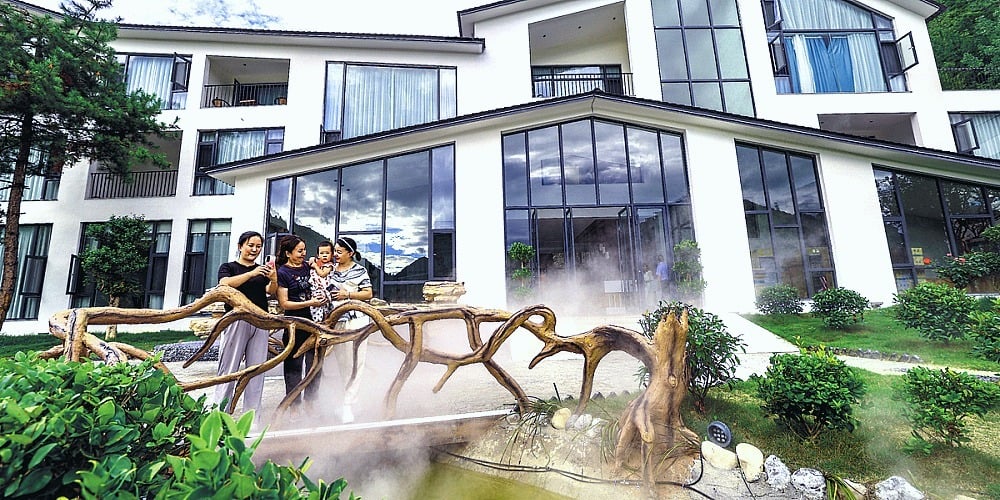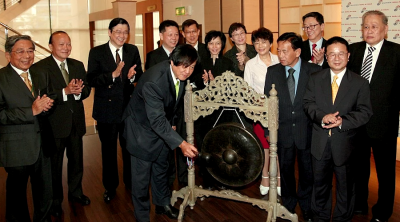Huang Wanfeng, 22, is a homestay manager in Nanning, South China’s Guangxi Zhuang autonomous region.
Huang entered the homestay industry when he was a sophomore. He rented a house near the local university town and opened his first homestay.
After years of hard work, Huang is now operating a homestay chain including ten buildings.
Of them, the flagship house that opened in 2020 has received rave reviews from guests.
“The first reason why I chose the homestay industry is that I love it. I have met interesting tourists from around the country during the past few years,” Huang said.
“Besides, it provides me with a sufficient income of 20,000 to 30,000 yuan (approximately RM12,600 to RM19,000) every month,” he added.
In 2022, homestay manager was officially acknowledged as a new profession by the Ministry of Human Resources and Social Security, improving social recognition of the industry and creating more job opportunities.
Data from Chinese on-demand service giant Meituan showed that from January to June, the number of people involved in the homestay industry on its platform rose 47 percent year-on-year.
In terms of age group, the post-2000 generation, referring to people born between 2000-09, recorded the fastest year-on-year growth of 140 percent.
The homestay operation and booking portal Tujia also reported that among new homestay owners registered on its platform during the first half of 2023, 70 percent are from Generation Z — those born between 1995 and 2009.

With the domestic tourism market bouncing back, the homestay industry is becoming a popular option for young people to work in and build a career, industry experts said.
Compared with 2019, the number of Generation Z homestay owners on its platform increased 50 percent, according to a report on homestay workers released by Tujia at the end of July.
One of the major characteristics of the young landlords is that they are well educated, said Liu Yang, chief commercial officer of Tujia.
The report showed that half of the homestay owners from Generation Z have a bachelor’s degree.
Meanwhile, 95 percent of them prefer to run homestays themselves rather than entrust others, according to the report.
Fan Xiaoyu, a 25-year-old homestay owner in Beijing’s Huairou district, said the job is challenging, which requires her to be versatile and constantly learn new skills.
“I play multiple roles in daily operations including cleaner, cashier, designer and livestreaming host,” Fan said, adding that she is taking training courses to obtain a barista certificate.
Dubbed “digital natives”, people from Generation Z have distinct advantages in homestay operations as they keep up with social media trends and can therefore better promote their homestays online, Liu said.
Wu Ruoshan, a guest researcher from the tourism research center at the Chinese Academy of Social Sciences, said the post-1995 and post-2000 generations focus more on personalized services and experience, which helps to meet the growing and diverse demands of consumers and advance the industrial upgrading.
To support rookie homestay managers, Tujia, Meituan and many other online travel agencies have launched free training programs online involving basic services, emergency response, consumer analysis and digital marketing.
ADVERTISEMENT
ADVERTISEMENT








































